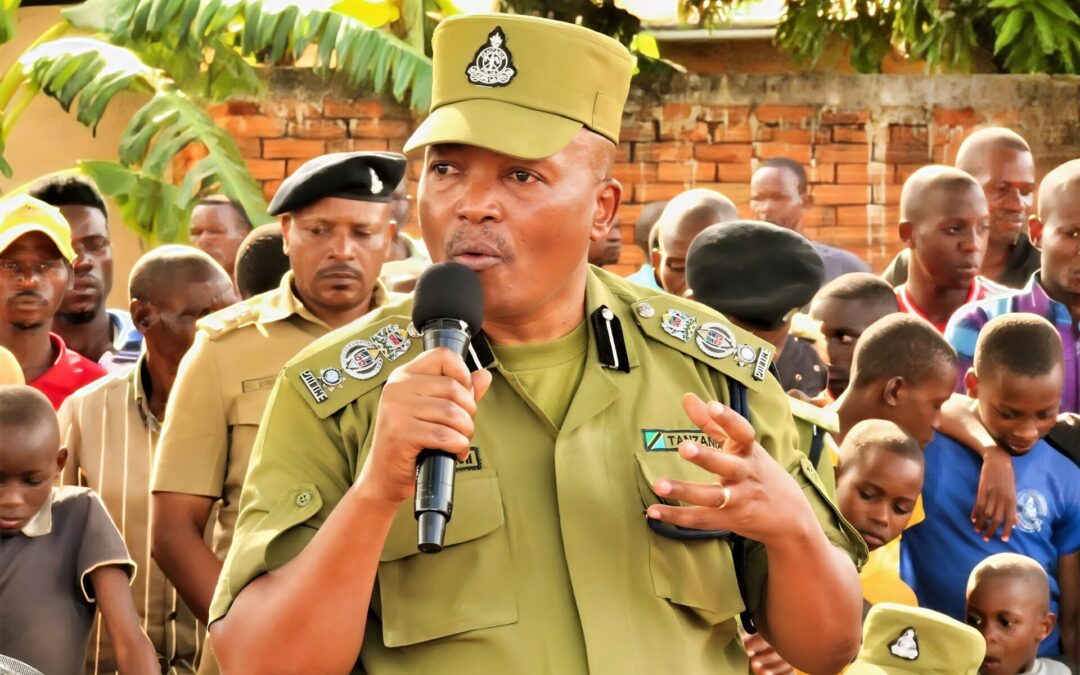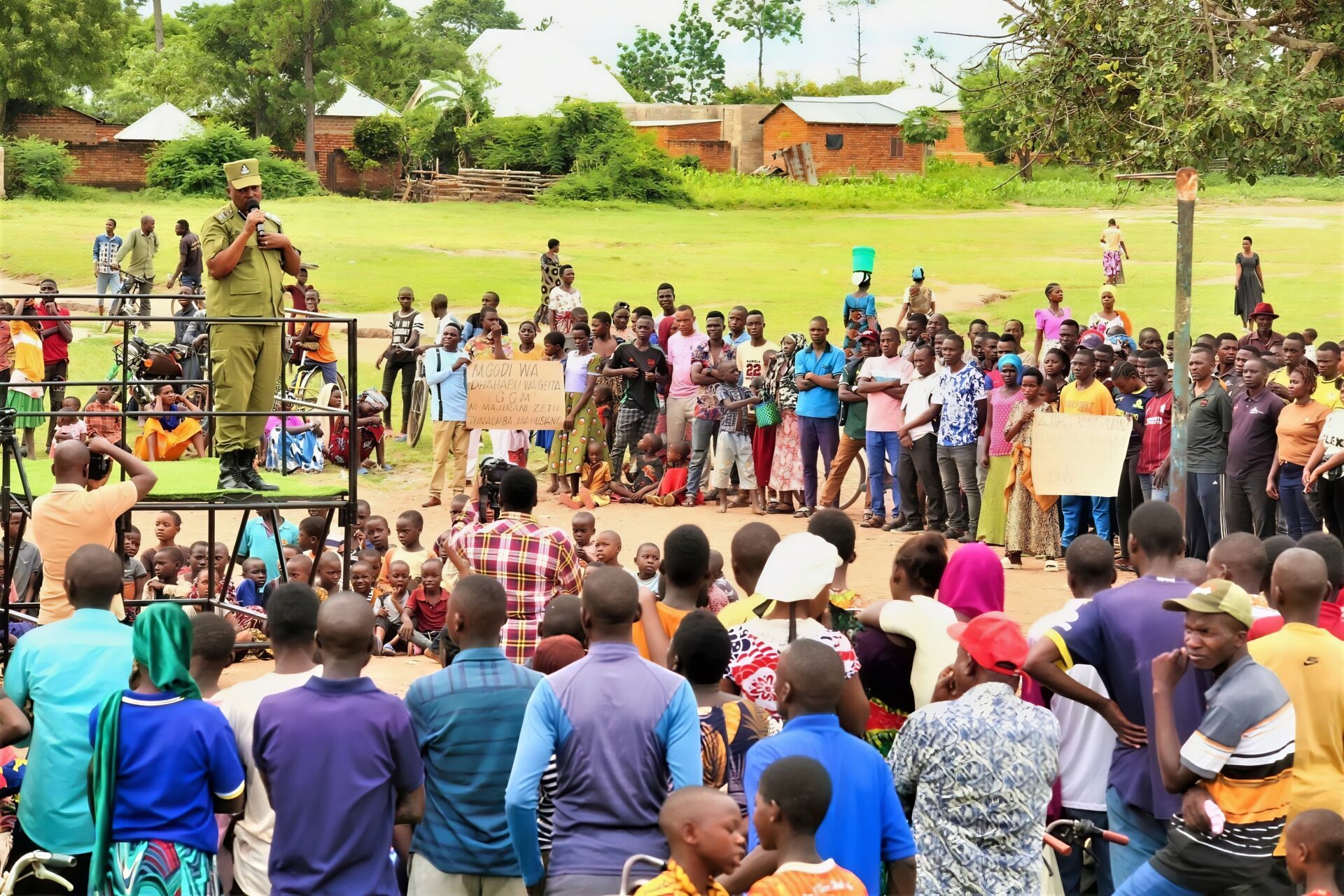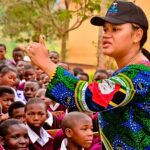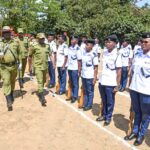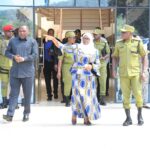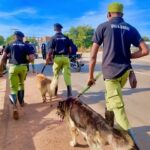Breaking the Silence: The Power of Open Dialogue in Combating Child Abuse
In Tanzania, child abuse remains a pressing issue that demands immediate action from parents, communities, and authorities alike. From early detection during routine activities like bath time to fostering open dialogue and encouraging reporting, protecting children requires vigilance, education, and collective effort. Assistant Police Inspector Wilfred Willa’s recent address in Geita District highlights the critical steps families and communities must take to combat this crisis. By equipping children with self-protection strategies, breaking cultural stigmas, and promoting community solidarity, Tanzanians can create a safer future where every child is valued and free from harm.
The available statistics provide unequivocal evidence of a recent increase in incidents of sexual violence against minors, as reported by the Gender and Children Desk at the Dodoma Police Headquarters. This phenomenon has been shown to result in psychological trauma with long-lasting effects. It is important to note that such crimes frequently go unreported, due to various factors including stigma, fear, or misguided attempts to protect family reputations. However, as Inspector Willa reminded the audience, silence only emboldens perpetrators while robbing survivors of justice and healing. This is not merely a plea; it is a call to action. It is incumbent upon parents to assume the role of vigilant guardians, acquiring the requisite knowledge and the fortitude to confront this growing crisis head-on.
1. Early Detection Can Save Lives
In a country as vibrant and diverse as Tanzania, where communities are often tight-knit and family values run deep, the safety of children remains a paramount concern. However, the unfortunate truth is that child abuse, particularly sexual abuse, continues to pose a significant and hidden threat. This is a topic that many would prefer not to discuss, but avoidance only serves to embolden perpetrators and leave victims trapped in silence. This underscores the significance of early detection, which is not merely a suggestion but a critical lifeline.
Assistant Police Inspector Wilfred Willa’s appeal to parents to regularly check their children during activities such as bath time highlights a fundamental truth: the prevention of crime begins in the home. Bath time presents a valuable opportunity for parents to closely observe their children without causing alarm or discomfort. Physical signs such as unexplained bruising, redness, swelling, or irritation in sensitive areas can be critical indicators of potential abuse. Other warning signs might include changes in behaviour, reluctance to participate in certain activities, or sudden withdrawal from social interactions.
Creating a Safe Space Through Routine Checks
Routine checks should not be perceived as intrusive or clinical; they can be integrated seamlessly into daily life. For instance, while assisting your child with bathing, you might inquire casually about any discomfort or changes they have noticed. It is important to approach these inquiries in a sensitive manner, ensuring that the child is not frightened or confused. This approach fosters open communication between parent and child, thereby creating a more conducive environment for them to confide in if they perceive an issue.
It is also vital to ensure that these checks are age-appropriate. For younger children, parents can visually inspect for any abnormalities while maintaining a calm and reassuring tone. With older children, especially those approaching adolescence, privacy becomes a significant issue. Rather than direct inspections, parents can encourage their children to report any unusual occurrences themselves, reinforcing the idea that they have autonomy over their bodies.
Empowering Children Through Education
While physical checks are vital, it is imperative that they are complemented by education for children on matters of body safety. In the context of British English, this concept is frequently referred to as “body boundaries”. Parents in Tanzania can adopt this approach by explaining to their children that no individual has the right to touch them in an inappropriate manner or to cause them discomfort. It is evident that straightforward phrases such as “Your body belongs to you” and “It’s okay to say no to anyone who tries to touch you without permission” have the capacity to empower children, enabling them to assert themselves confidently.
The following example is provided to illustrate this point: that of Fatuma (name changed), a 7-year-old girl from Dodoma whose mother had taught her about body boundaries. On one occasion, Fatuma informed her mother, albeit with some reticence, that her uncle had made attempts to make physical contact with her in a manner that caused her discomfort. It is evident that Fatuma possessed the confidence to articulate her concerns, a sentiment that was further bolstered by the creation of a secure atmosphere for such disclosures by her mother. Consequently, the incident was reported without delay, and the individual responsible was duly held accountable. It is evident that narratives such as that of Fatuma serve to illustrate the manner in which education and vigilance function in unison to ensure the effective protection of children.
The Role of Community Awareness
While parental vigilance is crucial, community awareness plays an equally important role in early detection. Teachers, healthcare workers, and neighbours can all contribute by staying alert to potential signs of abuse. For example, a teacher in Mwanza once noticed that a student consistently wore long sleeves despite the sweltering heat. Upon discreetly asking the child about it, she discovered hidden bruises on their arms. Such observations highlight the importance of collective responsibility in safeguarding children.
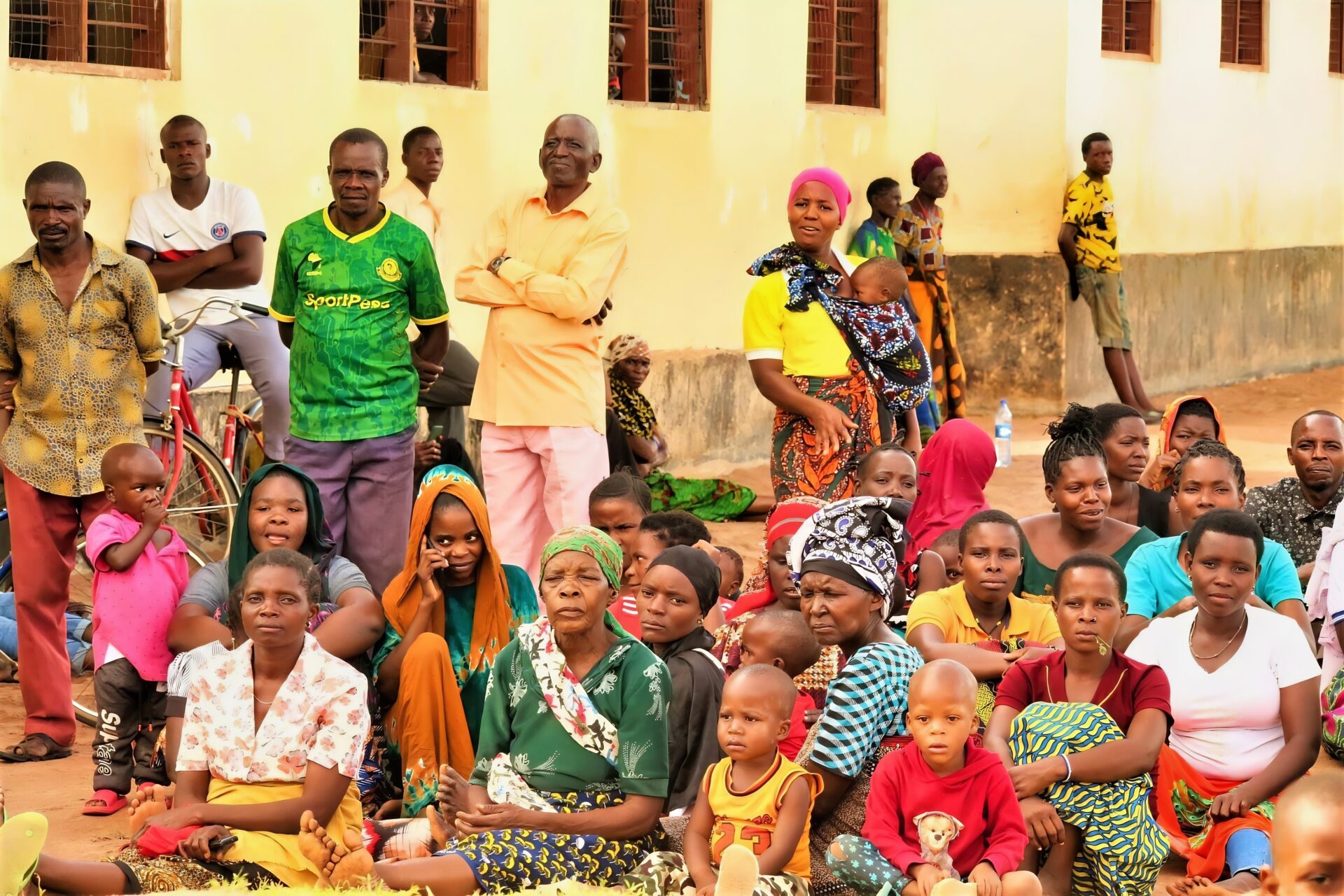
Actionable Insight: Making Prevention Part of Daily Life
To incorporate early detection into your routine, consider the following steps:
- Establish Consistency: Make visual checks part of your daily interactions with your child, whether during dressing, bathing, or playtime.
- Use Age-Appropriate Language: Teach young children the correct names for their private parts and explain what constitutes inappropriate touching. For older children, discuss scenarios they might encounter and how to respond.
- Encourage Open Dialogue: Create a judgement-free zone where your child feels comfortable sharing concerns. Let them know they won’t get in trouble for speaking up.
- Educate Beyond the Home: Advocate for similar discussions in schools and community groups to ensure children receive consistent messaging about body safety.
By taking these proactive measures, parents, and guardians in Tanzania can transform bath time—or any routine moment—into an opportunity to reinforce love, care, and protection. After all, every child deserves to grow up knowing they are cherished and shielded from harm. As Inspector Willa aptly put it, “Prevention starts with us. Our vigilance today shapes their tomorrow.”
2. Open Dialogue Breaks the Silence Around Abuse
In a nation like Tanzania, where cultural norms often prioritise modesty and discretion, discussing sensitive topics such as child molestation can feel uncomfortable. Yet silence, though well-intentioned, only serves to shield perpetrators and deepen the suffering of victims. One of the most powerful tools in combating this crisis is open dialogue—a simple yet transformative practice that dismantles barriers of shame and fear. By fostering trust and transparency within families, parents can create an environment where children feel safe to disclose abuse, ensuring that no child suffers alone.
Assistant Police Inspector Wilfred Willa made this point emphatically during his address in Geita District. “Talk to your children,” he urged the gathered crowd. “Explain what molestation looks like and reassure them that you will always believe and support them.” His words highlight a critical truth: communication isn’t just about exchanging information; it’s about building bridges of trust between parent and child. Offenders rely on secrecy, manipulating their victims into believing they will face blame, rejection, or punishment if they speak out. Breaking this cycle begins with creating a home environment where openness thrives and fear dissipates.
Why Open Dialogue Matters
Open dialogue does more than educate—it empowers. When children understand what constitutes inappropriate behaviour and know they have a trusted adult to turn to, they are far less likely to remain trapped in abusive situations. For instance, consider the story of Amina (name changed), a 9-year-old girl from Mwanza whose life was profoundly impacted by her mother’s willingness to engage in difficult conversations.
Amina’s mother first noticed subtle changes in her daughter’s behaviour—she seemed withdrawn after school hours, avoided playing with friends, and became unusually quiet during family meals. Concerned but not alarmed, she decided to gently question Amina one evening. Rather than interrogating her, she approached the conversation with care, saying, “I’ve noticed you seem a bit different lately. Is there anything you want to talk about? You can tell me anything, and I promise I’ll help you.”
This reassurance gave Amina the courage to confide that an older boy in her neighbourhood had coerced her into engaging in inappropriate acts. Thanks to her mother’s proactive approach, the incident was reported promptly to local authorities. The perpetrator was arrested, and Amina received the necessary support to begin healing. This case underscores how vital open dialogue is—not only in uncovering abuse but also in preventing further harm.
How to Foster Open Communication at Home
Creating an atmosphere of trust doesn’t happen overnight, especially in settings where societal taboos around discussing sexuality persist. However, small, consistent efforts can yield significant results over time. Here are some practical steps parents in Tanzania can take:
- Start Early: Begin age-appropriate conversations about body safety when children are young. Use clear language to explain that certain parts of their bodies are private and should not be touched without permission.
- Use Stories and Analogies: In British English terminology, this might be referred to as “teaching through storytelling.” For example, you could use relatable scenarios, like explaining why someone asking to borrow money without permission is wrong, to illustrate the concept of boundaries.
- Reassure Unwavering Support: Children need to hear—and truly believe—that they won’t face anger or disbelief if they share something troubling. Phrases like, “It’s never your fault if someone hurts you,” or “You’re brave for telling me,” reinforce this message.
- Be Observant: Pay attention to behavioural changes, such as sudden withdrawal, aggression, or reluctance to interact with specific individuals. These may indicate underlying issues that warrant further discussion.
- Encourage Questions: Let children know it’s okay to ask questions about their bodies or anything that makes them uncomfortable. Answer honestly and patiently, avoiding dismissive responses like, “Don’t worry about it.”
Addressing Cultural Challenges
While fostering open dialogue is universally beneficial, it’s important to acknowledge the unique challenges faced in Tanzanian communities. Discussing topics related to sexual abuse can sometimes clash with traditional values that emphasize privacy and respect for elders. Some parents may worry that broaching these subjects could expose their children to ideas they aren’t ready for or inadvertently encourage curiosity about adult matters.
However, evidence suggests that educating children about body safety actually reduces vulnerability rather than increasing it. As Inspector Willa pointed out, knowledge equips children with the tools to recognise danger and seek help. Moreover, framing these conversations within the context of love and protection helps align them with cultural values of care and responsibility.
For example, a father in Arusha shared how he navigated this delicate balance with his son. Instead of diving straight into specifics about abuse, he started by emphasising the importance of respecting oneself and others. Gradually, he introduced the idea of “body rules” and explained what constituted inappropriate behaviour. This gradual approach allowed him to address the topic respectfully while staying true to his family’s values.
The Ripple Effect of Open Conversations
When parents prioritise open dialogue, the benefits extend beyond individual households. Children who grow up feeling empowered to speak up become advocates themselves, sharing their knowledge with peers and contributing to broader cultural shifts. Teachers and community leaders can also play a pivotal role by reinforcing these messages in schools and public forums.
Take, for instance, a primary school teacher in Moshi who incorporated lessons on body safety into her curriculum. After noticing increased confidence among her students in reporting suspicious behaviour, she collaborated with local police to organise workshops for parents. These initiatives helped break down stigmas and encouraged more families to adopt open communication practices at home.
A Call to Action: Speaking Up Saves Lives
Inspector Willa’s plea for open dialogue reminds us that prevention begins with conversation. Every word spoken, every question asked, and every moment of reassurance given strengthens the protective net around our children. By breaking the silence surrounding abuse, we strip away the power of secrecy that allows offenders to thrive.
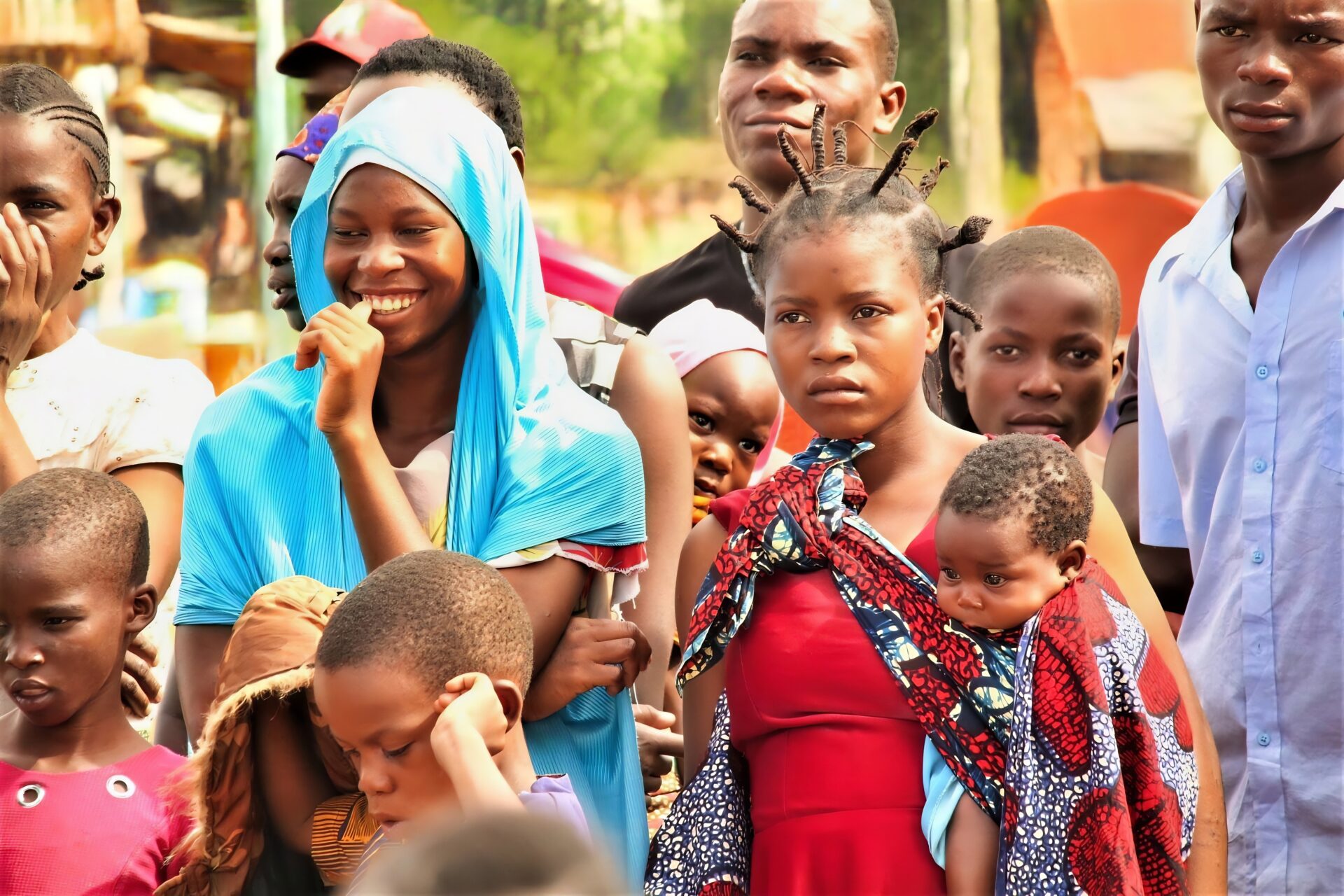
So tonight, as you sit with your child, consider starting a conversation—not because you suspect something is wrong, but because you want them to know they are loved, valued, and protected. Because in the end, the bravest thing we can do as parents is to listen—and to act.
3. Reporting Abuse Is a Moral Obligation
In Tanzania, where community ties are often strong and cultural traditions deeply rooted, the decision to report cases of child abuse can feel fraught with complexity. Many families grapple with the moral dilemma of whether to involve law enforcement or handle matters privately within the confines of familial bonds. However, Assistant Police Inspector Wilfred Willa delivered a powerful message during his address in Geita District: reporting abuse is not merely a legal duty—it is a moral obligation. By choosing silence over justice, families inadvertently perpetuate cycles of harm that ripple through communities, leaving both victims and society at large scarred.
Inspector Willa highlighted a troubling trend: too many families opt for private settlements, driven by cultural norms that prioritize reconciliation over prosecution. While this approach may seem like a way to preserve family unity or avoid societal judgment, it ultimately shields perpetrators from accountability. When offenders escape consequences, they are free to target other vulnerable children, creating a devastating domino effect of trauma. Moreover, failing to report abuse denies survivors access to critical resources such as counselling, medical care, and legal support—resources that are essential for their healing and recovery.
The Ripple Effect of Unreported Abuse
When abuse goes unreported, its impact extends far beyond the immediate victim. For instance, consider the case of a young boy in Singida whose uncle repeatedly molested him. The family chose to settle the matter internally, fearing public shame and potential rifts within the extended family. Years later, another child in the same household became a victim of the same perpetrator. This tragic scenario underscores how unresolved cases of abuse allow offenders to continue preying on the vulnerable, compounding the suffering of multiple victims.
Inspector Willa emphasized that justice isn’t just about punishing the guilty; it’s about protecting others. “Every time we fail to report abuse,” he said, “we give permission for it to happen again.” By bringing cases to light and holding perpetrators accountable, communities send an unequivocal message: such behaviour will not be tolerated.
Counterargument Considered: The Fear of Family Fracture
Critics of mandatory reporting often argue that involving law enforcement can tear families apart or invite societal judgment. In Tanzanian society, where communal harmony is highly valued, these concerns are understandable. Families may worry that reporting abuse will tarnish their reputation or lead to ostracism within their community. Others fear that pursuing legal action could strain relationships, particularly if the abuser is a close relative or someone held in high regard.
For example, imagine a family in Dodoma where a respected elder is accused of molesting a grandchild. The prospect of exposing him might seem unthinkable, given his standing in the community. Yet, as Inspector Willa pointed out, the long-term costs of silence outweigh any perceived short-term benefits. “Justice heals,” he asserted. Holding abusers accountable restores dignity to the victim, affirms their worth, and reinforces societal values of safety and respect.
Moreover, addressing abuse openly can strengthen families rather than weaken them. Survivors who receive validation and support are more likely to heal emotionally and rebuild trust. Conversely, sweeping abuse under the rug often leads to resentment, fractured relationships, and lingering pain that festers over generations.
The Role of Law Enforcement and Support Systems
Reporting abuse does not mean abandoning compassion or empathy. In fact, Tanzanian law enforcement agencies, including the Gender and Children Desks found in police stations nationwide, are increasingly equipped to handle such cases sensitively. Officers are trained to guide families through the process, ensuring survivors receive the care and protection they need. Legal frameworks, such as the Law of the Child Act (2009) and the Sexual Offences Special Provisions Act (SOSPA) , provide robust mechanisms for prosecuting offenders while safeguarding the rights of victims.

Additionally, reporting abuse connects survivors to vital support systems. Counselling services, offered by organizations like Wanawake na Watoto Tanzania (Women and Children of Tanzania), help children process their experiences and regain a sense of normalcy. Medical evaluations ensure physical injuries are treated promptly, reducing the risk of long-term health complications. Legal aid programs assist families in navigating court proceedings, alleviating the financial burden often associated with seeking justice.
A Community-Wide Responsibility
While parents bear the primary responsibility of reporting abuse, the broader community also plays a crucial role. Neighbours, teachers, healthcare workers, and faith leaders must all be vigilant and willing to act when they suspect wrongdoing. For example, a teacher in Tanga once noticed a student exhibiting signs of distress and reluctance to return home after school. After discreetly investigating, she discovered evidence of domestic abuse and reported the case to authorities. Her intervention saved the child and led to the arrest of the perpetrator, preventing further harm.
Inspector Willa urged citizens to view reporting abuse not as an act of betrayal but as an act of solidarity. “We are all guardians of our children,” he reminded the audience. “When one child suffers, we all suffer. When one abuser walks free, we all pay the price.”
A Call to Courage: Breaking the Cycle
Choosing to report abuse requires courage—a willingness to confront uncomfortable truths and challenge entrenched norms. It demands that we prioritise the well-being of the vulnerable over the preservation of appearances. But in doing so, we create safer, stronger communities where every child can grow up free from fear.
To those hesitant to come forward, Inspector Willa offered this reflection: “Silence protects no one. Justice heals everyone.” By taking the first step—whether it’s making a phone call to the police or seeking guidance from a trusted advocate—we take a stand against abuse and affirm our commitment to protecting the next generation.
So today, let us ask ourselves: What kind of legacy do we want to leave behind? One of silence and complicity, or one of courage and justice? The answer lies in our actions.
4. Education Empowers Both Adults and Children
In the fight against child abuse, knowledge truly is power. Awareness campaigns that educate both adults and children are not just supplementary measures—they are foundational pillars in creating safer communities across Tanzania. Schools, churches, local organizations, and even informal community gatherings all have a vital role to play in disseminating information about recognizing warning signs, responding appropriately, and equipping children with tools to protect themselves. These efforts transform passive bystanders into active defenders of children’s rights, fostering a culture where abuse has no hiding place.
Assistant Police Inspector Wilfred Willa highlighted this point during his address in Geita District, emphasizing that education must be a two-way street: parents and caregivers need to learn how to identify red flags, while children require skills to navigate unsafe situations. Programs like Kiboko Kijana (“Empower the Child”) exemplify this dual approach, having successfully reached thousands of Tanzanian students by teaching them how to recognize danger and seek help effectively. Such initiatives underscore the transformative potential of education as a shield against abuse.
The Importance of Educating Adults
Parents, guardians, teachers, and other adults in a child’s life serve as the first line of defence against abuse. However, without proper training, they may overlook subtle indicators or fail to respond appropriately when concerns arise. For instance, unexplained changes in behaviour—such as withdrawal, aggression, or sudden reluctance to interact with certain individuals—can often signal underlying issues. Yet, these signs can easily go unnoticed if adults aren’t aware of what to look for.
Awareness campaigns conducted by schools, churches, and NGOs provide invaluable guidance on spotting these markers and taking action. In Moshi, for example, a church-based initiative trained congregants on identifying signs of neglect and emotional distress in children within their community. This knowledge enabled one grandmother to notice her grandson’s unusual fearfulness around a particular neighbour. Her intervention ultimately revealed a pattern of grooming behaviour, allowing authorities to step in before any physical harm occurred.
Similarly, workshops for teachers have proven instrumental in empowering educators to act as vigilant advocates for their students. Consider the story of Ms. Mwajuma, a primary school teacher in Arusha who participated in an awareness program under Kiboko Kijana . During class one day, she observed a student repeatedly flinching whenever another child accidentally brushed against her arm. Concerned but non-confrontational, Ms. Mwajuma gently approached the girl after class and asked if everything was alright at home. The child eventually confided that her uncle had been molesting her for months. Thanks to Ms. Mwajuma’s training, the case was reported immediately, leading to the arrest of the offender and the provision of counselling for the survivor.
These real-world examples illustrate how educating adults creates a protective network around children, ensuring that no cry for help goes unheard.
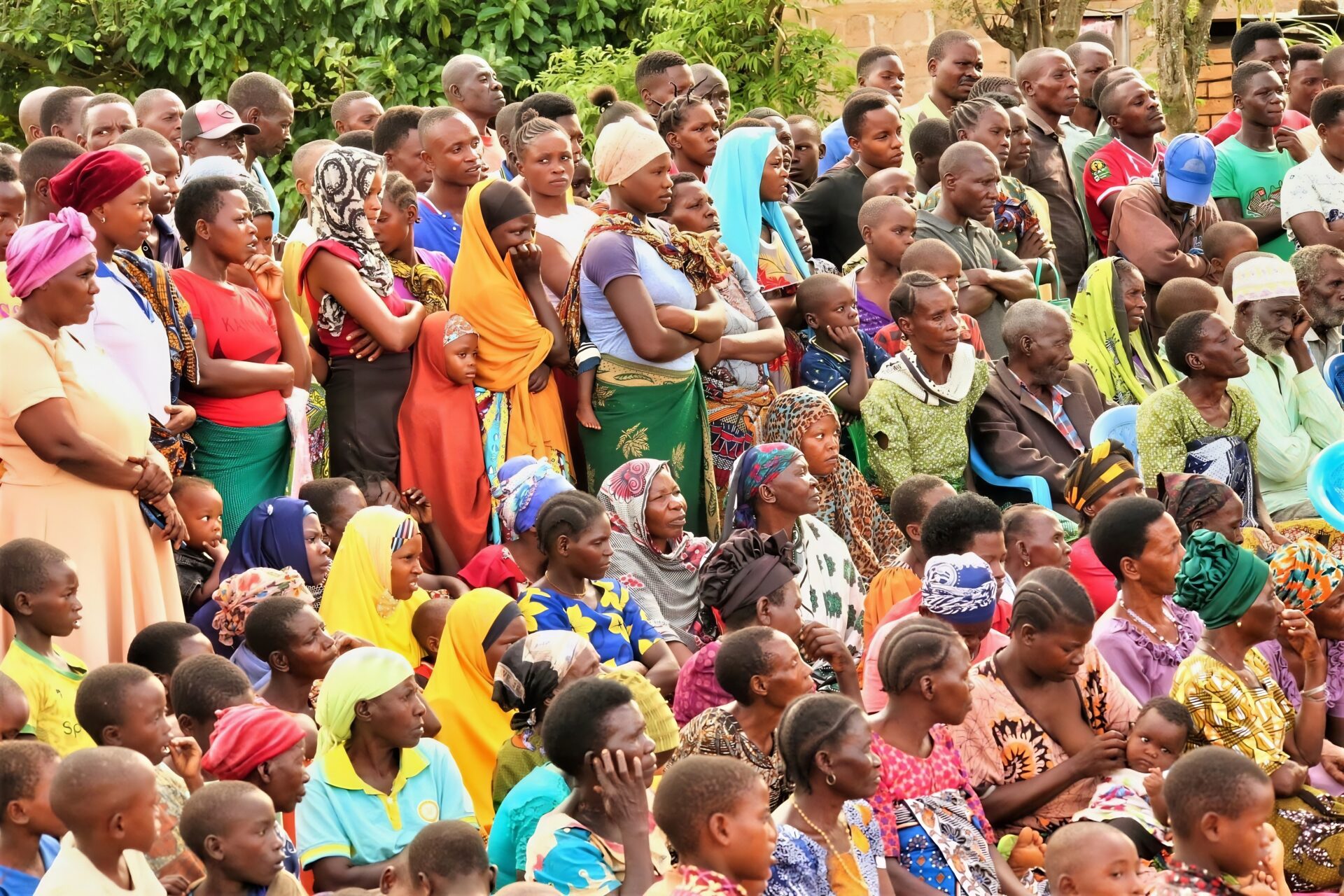
Equipping Children with Self-Protection Strategies
While adult education focuses on detection and response, programs aimed at children focus on prevention and empowerment. Teaching children about body safety, boundaries, and self-advocacy equips them with critical life skills that can shield them from harm.
For example, Kiboko Kijana uses interactive methods such as storytelling, role-playing, and group discussions to engage young participants. One popular activity involves presenting hypothetical scenarios—such as being offered sweets by a stranger in exchange for keeping a “secret”—and encouraging children to discuss how they would react. These exercises help demystify complex concepts like coercion and manipulation, making them accessible even to younger audiences.
The program also emphasizes practical steps children can take if they find themselves in unsafe situations. For instance:
- Say No Loudly: Teach children to use assertive language to refuse unwanted advances.
- Run Away: Encourage them to leave the situation and seek a trusted adult immediately.
- Tell Someone: Reinforce the importance of reporting incidents to someone they trust, whether it’s a parent, teacher, or neighbour.
By embedding these lessons into everyday conversations and activities, programs like Kiboko Kijana ensure that children internalize key messages without feeling overwhelmed or frightened.
Addressing Cultural Sensitivities
Implementing educational initiatives in Tanzania requires sensitivity to cultural nuances. Discussions about sexual abuse and body safety can sometimes conflict with traditional values that prioritize modesty or discourage open dialogue about intimate topics. To bridge this gap, many programs adopt culturally relevant approaches that align with local customs while still delivering essential content.
For instance, in rural areas of Dodoma, facilitators frame conversations about body safety within the context of respect and dignity—values deeply cherished in Tanzanian society. Instead of focusing solely on the mechanics of abuse, they highlight the broader theme of protecting oneself and others as an act of love and responsibility. This reframing helps reduce resistance and fosters greater acceptance among participants.
Churches and mosques also play a pivotal role in overcoming cultural barriers. Religious leaders often incorporate messages about child protection into sermons and teachings, leveraging their influence to promote awareness and accountability. A pastor in Iringa once shared a powerful analogy during Sunday service: “Just as we guard our homes against thieves, so too must we safeguard our children against those who would harm them.” His words resonated deeply with congregants, inspiring several families to enrol their children in nearby safety workshops.
Collaboration Strengthens Impact
No single entity can tackle child abuse alone—it takes a village. Successful awareness campaigns rely on collaboration between various stakeholders, including government agencies, schools, faith-based organizations, and grassroots groups. Each partner brings unique strengths to the table, amplifying the overall impact.
Take, for example, the partnership between a secondary school in Mbeya and a local NGO specializing in child protection. Together, they organized a week-long event featuring guest speakers, drama performances, and art competitions centred on themes of safety and resilience. Students left the event better informed and inspired to become ambassadors for change within their peer groups.
Such collaborations demonstrate how pooling resources and expertise can create lasting change. By working together, communities can build robust systems of support that leave no child behind.
A Call to Action: Investing in Education
Inspector Willa’s message was clear: education is not optional—it is imperative. Every workshop held, every lesson taught, and every conversation started plants seeds of hope and resilience in the hearts of children and adults alike. It empowers parents to spot danger, gives teachers the tools to intervene, and arms children with the confidence to say no to abuse.
To maximize the reach of these initiatives, funding, and policy support are crucial. Local governments, businesses, and international partners must invest in scaling up successful programs like Kiboko Kijana , ensuring they reach even the most remote corners of Tanzania. At the same time, individuals can contribute by volunteering, spreading awareness, or simply starting conversations within their own circles.
As Ms. Mwajuma’s story shows, the ripple effects of education are profound. When adults are equipped to listen and children are empowered to speak, lives are saved, justice is served, and communities grow stronger. Let us commit to making education a cornerstone of our collective effort to end child abuse—for today’s children and for generations to come.
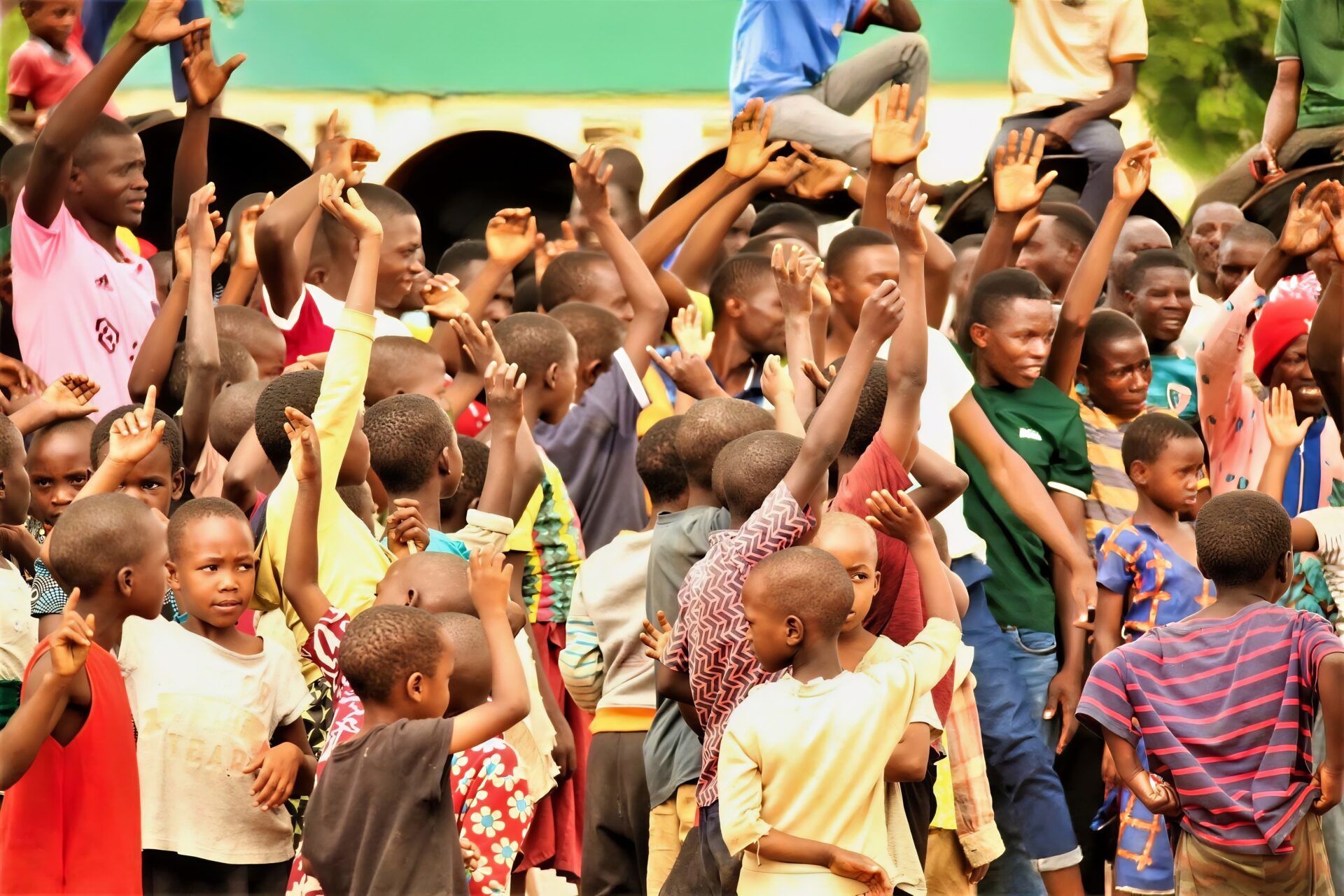
5. Community Solidarity Strengthens Protection Efforts
In the fight against child abuse, the adage “it takes a village to raise a child” rings truer than ever. No parent, teacher, or caregiver can shoulder the responsibility of protecting children alone—nor should they have to. In Tanzania, where communities are often deeply interconnected, fostering solidarity and collective vigilance is not just an ideal; it’s a necessity. Assistant Police Inspector Wilfred Willa drove this point home during his address in Geita District, urging citizens to unite against the scourge of child abuse. “Protecting one child ultimately safeguards all,” he reminded the audience, emphasizing that community collaboration is the cornerstone of effective prevention and intervention.
Child abuse thrives in isolation—it preys on secrecy, fear, and silence. But when neighbours, teachers, faith leaders, and local organizations come together, they create a protective web that leaves little room for perpetrators to operate unnoticed. By pooling resources, sharing knowledge, and supporting one another, communities can transform into bastions of safety where every child feels valued and protected.
The Power of Collective Vigilance
Community solidarity begins with recognizing that safeguarding children is everyone’s responsibility—not just that of parents or guardians. Neighbours, for instance, play a crucial role in looking out for each other’s children. A watchful neighbour might notice unusual activity at a nearby home or observe behavioural changes in a child who frequently visits. These observations, though seemingly small, can be pivotal in uncovering hidden dangers.
Consider the story of Jamila (name changed), a 10-year-old girl from Morogoro whose plight was discovered thanks to her neighbour’s attentiveness. The neighbour had noticed that Jamila seemed unusually withdrawn whenever she returned from visiting relatives across town. Concerned, she shared her observations with Jamila’s mother, who then gently questioned her daughter. It emerged that Jamila had been subjected to inappropriate behaviour by an older cousin during these visits. Prompt action followed, sparing Jamila further harm and holding the perpetrator accountable.
This example illustrates how even simple acts of neighbourly concern can make a monumental difference. When individuals step up and share their insights, they contribute to a culture of accountability and care.
Teachers as Frontline Defenders
Teachers occupy a unique position in Tanzanian society, serving as trusted figures in children’s lives outside the home. Their daily interactions with students provide invaluable opportunities to detect warning signs and intervene early. Behavioural shifts such as declining academic performance, withdrawal from peers, or sudden aggression can all indicate underlying issues.
For instance, in Arusha, a secondary school teacher named Mr. Kibanga participated in a training session on identifying signs of abuse. Armed with newfound knowledge, he soon noticed subtle changes in one of his students—a previously outgoing boy who had grown increasingly quiet and disengaged. After speaking privately with the student, Mr. Kibanga learned that the boy’s older brother had been exploiting him financially and emotionally. With the boy’s consent, Mr. Kibanga reported the matter to the school counsellor, who coordinated with authorities to address the situation.
Stories like this highlight the critical role educators play in protecting children. By fostering open communication and staying alert to behavioural cues, teachers become frontline defenders in the battle against abuse.
Faith Leaders as Advocates for Zero Tolerance
Faith institutions hold immense influence in Tanzanian communities, making them powerful allies in the fight against child abuse. Religious leaders can use their platforms to advocate for zero tolerance toward abuse, challenging harmful cultural practices and stigmas that perpetuate silence. They can also offer spiritual guidance and emotional support to survivors and their families, helping them navigate the difficult journey toward healing.
In Dodoma, a pastor named Reverend Mwakalinga took bold steps to address the issue within his congregation. Recognizing that many parishioners hesitated to discuss abuse openly, he organized a series of sermons focused on themes of justice, dignity, and protection. He encouraged members to report suspected cases and assured them of confidentiality and support. His efforts led to several families coming forward, enabling timely interventions that prevented further harm.
Similarly, mosques across Tanzania have begun incorporating messages about child safety into Friday prayers. Imams remind worshippers that protecting children aligns with Islamic principles of compassion and justice, urging them to take action if they suspect wrongdoing. These initiatives demonstrate how faith leaders can bridge gaps between tradition and progress, fostering environments where abuse has no place to hide.
Local Organizations as Catalysts for Change
Non-governmental organizations (NGOs) and community-based groups also play a vital role in strengthening protection efforts. These entities often serve as bridges between families, law enforcement, and social services, ensuring that survivors receive comprehensive care while perpetrators face appropriate consequences.
One notable example is Tumaini Yetu , a grassroots organization operating in Dar es Salaam. Through its outreach programs, Tumaini Yetu educates communities about child rights and provides counselling services to survivors and their families. The organization also collaborates with local police to facilitate reporting and investigation processes, reducing barriers that might otherwise deter victims from seeking help.
Such partnerships exemplify how collective action amplifies impact. By working together, NGOs, government agencies, and community stakeholders create ecosystems of support that leave no child behind.
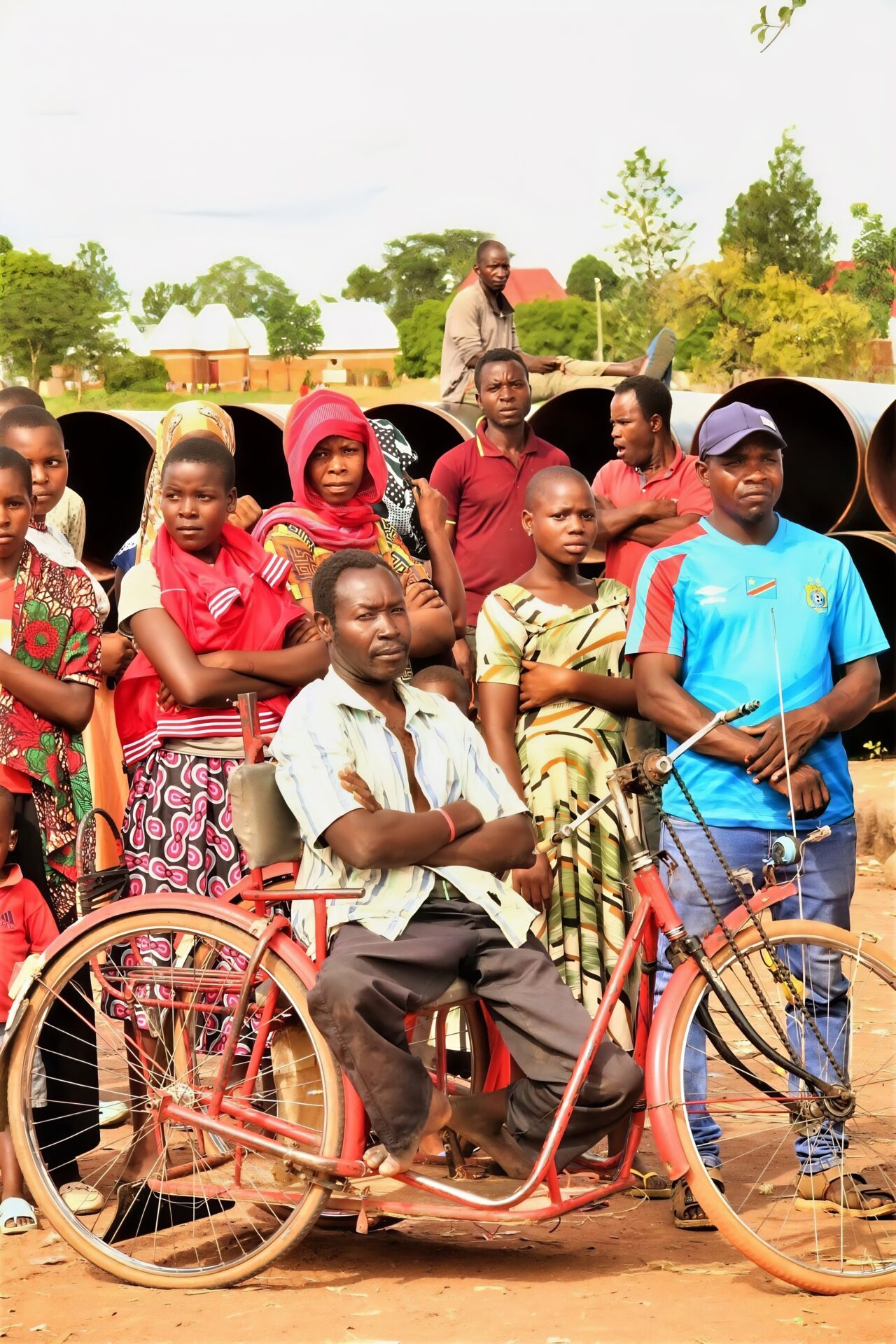
Overcoming Barriers to Collaboration
While community solidarity offers immense promise, it is not without challenges. Cultural norms, mistrust of authority, and fear of societal judgment can sometimes hinder cooperation. For example, some families may resist involving outsiders in personal matters, viewing it as intrusive or disrespectful. Others may worry about retaliation or ostracism if they speak out against influential community members.
To overcome these obstacles, education and trust-building are essential. Awareness campaigns must emphasize that reporting abuse is not an act of betrayal but an act of courage and compassion. Communities must also work to dismantle harmful stereotypes that stigmatize survivors, replacing shame with empathy and understanding.
Inspector Willa addressed these concerns directly during his speech, reminding attendees that unity is strength. “When we stand together,” he said, “we send a clear message: abuse will not be tolerated here. Together, we protect our future.”
A Call to Action: Standing United
The fight against child abuse requires more than individual effort—it demands collective resolve. Every neighbour who notices something amiss, every teacher who listens attentively, and every faith leader who speaks boldly contributes to a safer, stronger community. By building networks of support and fostering a culture of vigilance, Tanzanians can ensure that no child suffers in silence.
Inspector Willa’s closing words serve as both a rallying cry and a reminder: “Protecting one child ultimately safeguards all.” Let us embrace this truth and commit ourselves to standing united—for the sake of today’s children and tomorrow’s generations. After all, when communities rise together, hope rises with them.
A Future Worth Fighting For
As the sun dipped below the horizon, casting a warm golden glow over Nyawilimilwa and Bugulula, Assistant Police Inspector Wilfred Willa’s impassioned words hung in the air like a promise—a mix of hope and resolve that resonated deeply with those who had gathered. His message was clear: protecting our children is not just a task; it is a calling. It requires effort, yes, but more importantly, it demands love, courage, and an unwavering commitment to building a future where every child can thrive without fear.
In Tanzania, a nation renowned for its rich cultural tapestry and strong sense of community, the responsibility to safeguard children extends far beyond individual households. Every inspection conducted during bath time, every open conversation about body safety, and every report filed with law enforcement agencies lays another brick in the foundation of a safer, more compassionate society. These small yet significant actions collectively form the bedrock upon which we can construct a world where abuse has no place to hide.
The Weight of Our Shared Responsibility
Inspector Willa reminded his audience that the fight against child molestation is not merely a parental duty—it’s a human imperative. This perspective reframes child protection as a collective obligation, one that transcends familial bonds and embraces the broader ethos of humanity. When we fail to act, whether through silence, indifference, or fear, we inadvertently contribute to a culture that allows abuse to fester. But when we step forward—with vigilance, empathy, and determination—we become architects of change, shaping a brighter future for generations to come.
Consider the ripple effect of even the smallest intervention. A mother checking her child for signs of harm may uncover abuse before it escalates. A teacher noticing behavioural changes might save a student from prolonged suffering. A neighbour reporting suspicious activity could prevent tragedy from striking multiple families. Each action, no matter how seemingly minor, contributes to a larger movement—a concerted effort to ensure that every child grows up knowing they are valued, protected, and free to dream without fear.
Love and Courage: The Twin Pillars of Protection
At the heart of this mission lies love—the kind of unconditional, selfless love that compels parents to check on their children, teachers to advocate for their students, and neighbours to look out for one another. Love drives us to prioritize the well-being of the vulnerable over convenience or comfort. Yet love alone is not enough. Protecting children also demands courage—the courage to confront uncomfortable truths, challenge harmful norms, and take decisive action when needed.
For many Tanzanians, this courage means breaking away from long-standing traditions that prioritize privacy and reconciliation over justice. It means speaking up, even when voices tremble, and seeking help, even when hands shake. It means standing firm in the belief that every child deserves to live in dignity and safety, regardless of societal pressures or personal fears.
Take, for example, the story of Mariam (name changed), a single mother in Dodoma who faced immense pressure from her extended family to remain silent after discovering her daughter had been abused by a relative. Despite the backlash, she chose to report the incident, driven by her love for her child and her courage to defy convention. Her decision not only secured justice for her daughter, but also inspired others in her community to follow suit, creating a domino effect of accountability and healing.
Building a Legacy of Safety and Hope
Every effort we make today plants seeds for tomorrow. By prioritizing education, fostering open dialogue, and promoting community solidarity, we lay the groundwork for a legacy of safety and hope. Imagine a Tanzania where children grow up confident in their worth, secure in their surroundings, and empowered to pursue their dreams. Such a vision is within reach—but achieving it requires sustained dedication from all of us.
Inspector Willa’s closing remarks served as both a reflection and a call to action. “Let us remember,” he urged, “that protecting one child ultimately safeguards all.” This sentiment encapsulates the essence of what we strive for—a society where every child, regardless of background or circumstance, can flourish under the protective wings of a caring community.

A Personal Reflection: What Can You Do?
Tonight, as you tuck your little ones into bed, pause for a moment and ask yourself: Have I done everything possible to keep them safe? If the answer feels uncertain, there is solace in knowing that tomorrow offers a fresh start—a chance to begin anew. Perhaps it’s initiating that difficult conversation about body boundaries. Maybe it’s reaching out to a local NGO to learn more about child protection resources. Or it could simply be resolving to pay closer attention to the children in your life, trusting your instincts if something feels amiss.
Remember, protecting children is not a solitary endeavour. It is a shared journey fuelled by collaboration, compassion, and resilience. Together, we can dismantle the shadows where abuse thrives and replace them with light—a light that illuminates pathways to justice, healing, and hope.
So let us rise to the occasion, not just as parents or guardians, but as stewards of humanity. Let us commit to building a future where every child knows they are cherished, protected, and free to dream without fear. For in doing so, we honour not only the innocence of childhood but also the boundless potential of our shared humanity.
Tanzania Media
- Kanyala Ferry Launch: TEMESA’s New Service for 15,000 Sengerema Residents (Mwanza) - 18 August 2025
- Russia-Tanzania Naval Cooperation: How the Smolny Training Ship Boosts Dar es Salaam’s Maritime Security - 18 August 2025
- Tanzania’s ICGLR Commitment: Stabilising the DRC & Great Lakes Region - 18 August 2025

